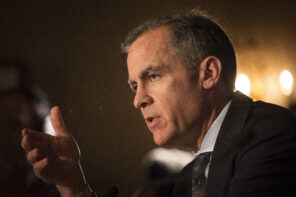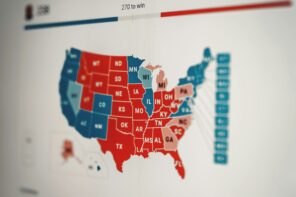On April 4, Canada’s EcoFiscal Commission released a report on carbon pricing designed to move the conversation on environmentally-conscious policy forward, both in the minds of Canadian policy makers and Canadian citizens as a whole.
The EcoFiscal Commission is made up of policy makers and economists from across the country, who seek to advance pollution pricing policy. The report, entitled “Clearing the Air: How Carbon Pricing Helps Canada Fight Climate Change”, aims to demystify what exactly carbon pricing entails and how it works as a means of reducing Greenhouse Gas emissions.
“An EcoFiscal policy is one that encourages economic activities that we do want, like carbon taxes and cap-and-trade policies, and reduces economic activities that we don’t want,” explained Brendan Frank, an analyst with the EcoFiscal Commission.
Carbon pricing is not a new concept to Canadian policy makers; as the report explains, provinces like Quebec, Ontario, Alberta, and British Columbia already have a variety of carbon pricing policies in place. Progress is continually being made towards making Canada’s economy more environmentally responsible. As of 2018, for example, the Pan-Canadian Framework on Clean Growth and Climate established that every Canadian province except Saskatchewan must implement a carbon pricing policy by the end of the year.
In addition to the report, the EcoFiscal Commission conducted a nationwide survey which gauged Canadian opinion on carbon pricing. The results demonstrated that over 70% of Canadians believe carbon pricing is an acceptable approach to address climate change. Frank remarked on why environmental policies with an economic approach have proven effective in the past: “The point is that people and businesses respond to prices all the time. When you put a price on something, people will put a limit on their usage.”
Despite these advances, some Canadians are unsure about carbon taxation. Many believe that carbon pricing will not have any effect on combating climate change, or think that any environmental impact of carbon pricing will be minimal. The goal of the EcoFiscal report is to clear up confusion about what carbon pricing is and how it works, and also to provide evidence of the reduction in greenhouse gas emissions which have occurred as a result of carbon pricing.
Climate change is a subject at the forefront of many international conversations, and the Canadian government has taken steps to address the growing threat of climate change to many Canadian residents, especially in Canada’s Arctic provinces.
“Every provincial government in Canada has made it clear that it wants to reduce emissions,” stated Frank. “We want to show policy makers that carbon taxation is an effective method of tackling climate change, and there’s evidence that it works.”








